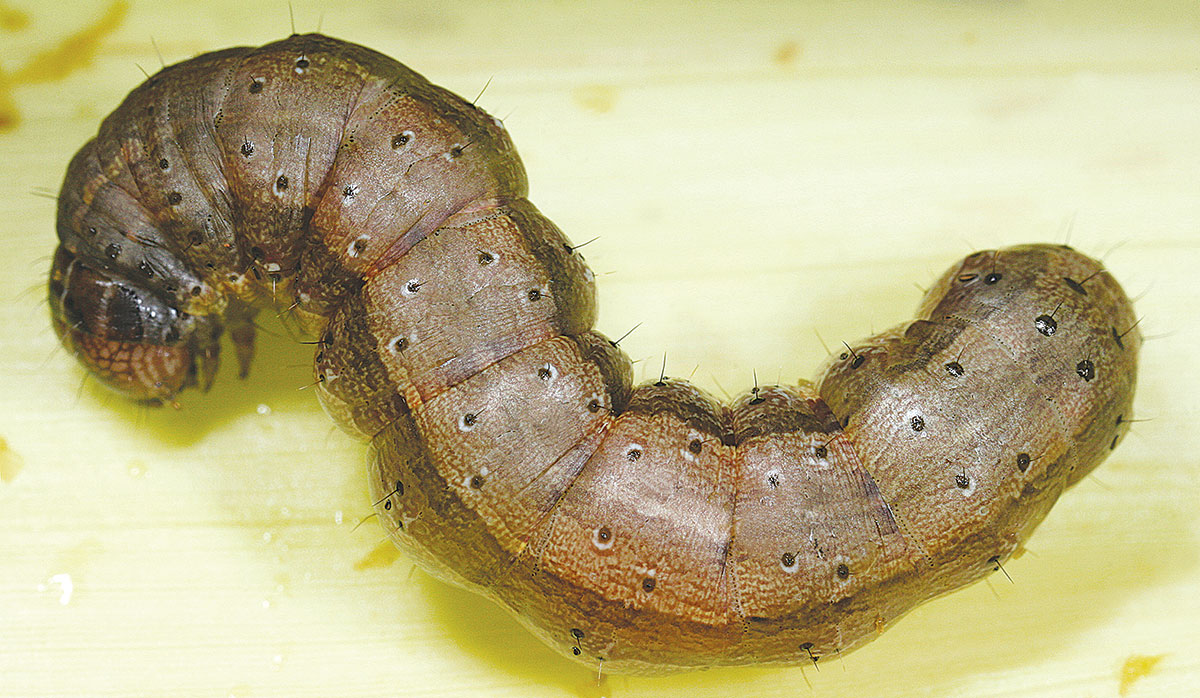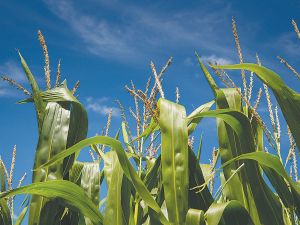As an example, Fall armyworm (FAW) is one of the world’s most devastating agricultural insect pests. When it was first detected in New Zealand in February 2022, access to effective registered options to manage it was a significant challenge.
By November 2022, thanks to the joint efforts of APHANZ member Corteva Agriscience, industry groups and the Ministry of Primary Industries, access to an innovative product called Sparta was approved for use against FAW in corn and maize crops as part of the initial response.
As it is safe to key beneficial insects that control pests, Sparta is now part of a long-term Integrated Pest Management (IPM) strategy, a great example of combining biological, chemical and cultural controls to maximise use of beneficial insects whilst minimising unnecessary insecticide use.
FAW can feed on over 350 plant species, preferring grasses and cereals, especially sweetcorn and maize. It is extremely difficult to manage, and adult moths can travel hundreds of kilometres on wind – as it did to arrive in New Zealand from Australia. So, eradication is unlikely.
“When FAW was detected in New Zealand, we could see that the industry didn’t have a good option registered for FAW,” says Glen Surgenor, New Zealand marketing manager of US-based Corteva Agriscience, who produce Sparta.
“There were some organophosphate and synthetic pyrethroid products they could use in maize, but based on overseas experience there is known resistance to this chemistry.”
Broad-spectrum chemicals also don’t offer the same level of protection as Sparta, which has been approved and used effectively to manage FAW in Asia Pacific, Australia and the Americas since the pest began to impact those markets.
When FAW was first detected here, Seed and Grain Readiness and Response (SGRR), New Zealand’s arable sector alliance for biosecurity, played a lead role in the response and looked to this active ingredient as the first line of defence.
The active ingredient in Sparta spinetoram – derived from a naturally occurring soil bacterium that is safer to users, the environment and most beneficial insects – is already registered for use in New Zealand for pest control in fruit crops.
However, a new application to the Ministry for Primary Industries (MPI), Animal Compounds and Veterinary Medicines Group (ACVMG) was required to register it for use against FAW in corn and maize crops under the ACVM Act.
Surgenor says Corteva began internal discussions in July 2022 around how they could support these biosecurity efforts by seeking some level of regulatory approval for Sparta on FAW in New Zealand.
After initially seeking an operating plan for managed use, with applications having to be tracked and recorded, ACVM accepted their submission through the usual application process, allowing the claims to move to the label.
“Our regulatory team both here and in Australia worked closely with staff at the Ministry for Primary Industries ACVMG and the Environmental Protection Authority to lodge the application and bring Sparta to market here as quickly as possible.”
In addition to this, letters of support from industry groups and companies such as the Foundation for Arable Research (FAR), Pioneer and rural resellers helped reinforce the importance of having access for growers to help protect their crops against FAW in the current season and beyond.
Surgenor says access to international data was also key to fast-tracking the approval process.
“Usually, we have to generate local data through many New Zealand based trials, across multiple years, which is costly. With Sparta, we could use overseas data showing its effectiveness on FAW across multiple climate zones. For the regulator to accept that was unique and very valuable for New Zealand.
“Without all that overseas experience in securing regulatory approval, and access to all the trial data and studies that the approval process entails, we would not have been in a position to apply for the FAW claim here in New Zealand.”
Benefits of Innovation
Sparta is currently the only product registered for use on FAW in corn and maize in New Zealand and can be applied by ground-spray and aerial applications.
The benefit of this innovation is that it is safe for key beneficial insects that help control insect pests like lady birds, lacewings and spiders and so can work as part of an Integrated Pest Management (IPM) programme. Its low toxicity means it has a short withholding period (the time elapsed between the last application and harvest).
 |
|---|
|
Fall Armyworm is one of the world's most devastating agricultural insect pests.
|
“IPM-friendly products are an option to traditional broad-spectrum insecticides. Unfortunately, there is a number of new IPM-friendly products sitting in the New Zealand regulatory queue. Meanwhile farmers are using organophosphates and synthetic pyrethroids,” says Glen Surgenor.
“Likewise with biologicals that go through the same regulatory pathway as synthetics so can take four to five years to be approved. Meanwhile other countries like the US and Brazil have prioritised biologicals so that the approval; process takes only eight to 12 months.”
Its unique ‘mode of action’ (the way the control agent affects the pest) also means it controls insects resistant to other insecticides. FAW has a strong track record of developing resistance to many commonly used insecticides that are no longer providing control of the pest.
Ashley Mills, arable biosecurity & industry relationships officer at FAR, says having other modes of action available for the industry is critical to maintaining effective IPM for FAW into the future.
“We need an active toolbox of solutions appropriate for FAW to reduce the risk of resistance and to give growers the confidence they need in an integrated pest management programme. If you have at least two modes of action you can come up with a robust strategy, especially where one is soft on beneficial insects.”




















